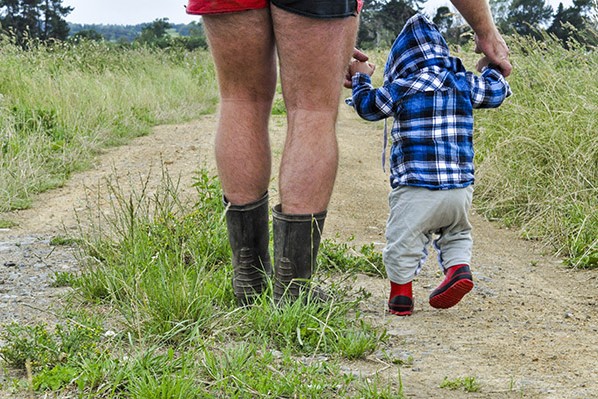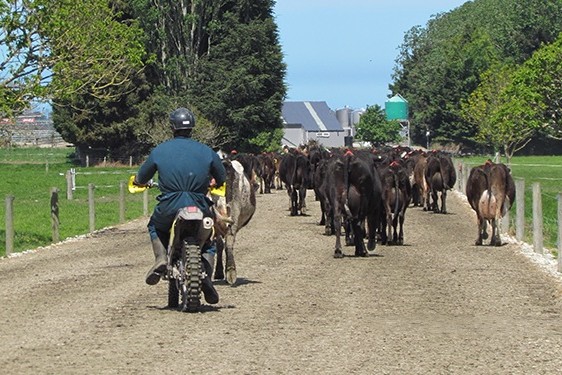Everyday habits can have dangerous, even fatal consequences. Harriet Bremner writes.

Our perception of ‘safety’ is controlled by the experiences we have endured, long, short or otherwise.
We look at a situation through the lens of knowledge on our own part and when things have not gone wrong for us then grow this idealism that ‘it’ll never happen to me’.
If you have always driven a tractor on the side of a hill for ag work and not had an accident then your perception of how dangerous this is has most likely become that it’s fine, you’ve been doing it for years and nothing has happened.
Me, I love tractor driving but I hate it on steep hills because I remember being told about someone experienced who lost their life this way and it was something they did every single day.
Think about your daily farming life or reflect on the past months through calving, milking, mating, re-staffing and weather. What are the things you have been ‘lucky’ to get away with, that you need to treat with more care and respect every day?
What close calls have your staff had that you need to have a real conversation about to ensure it doesn’t happen again?
Now is the time.
If these things keep getting brushed under the carpet, then they are not seen as a priority in your eyes or that of your staff and you are opening the door to silently saying that it is okay that you nearly died at work today, as long as the jobs got done. Time is a funny thing because cutting corners we believe saves us time, and it can, if we get away with cutting the corner.
But what happens when you don’t get away with it – when someone is permanently injured for the rest of their life, they lose their life, your tractor is written off?
These things then cause ‘time’ to be irrelevant as the time to repair any of these things is really just not worth cutting that corner in the first place.
Here’s a shocker… health and safety is not all about chucking on PPE gear!
It is about:
- Servicing gear to make sure things like brakes work.
- Having conversations with the people on your farm and ensuring they know how to do the job at hand the best way possible.
- Making sure any mental health issues are addressed so you know your staff are coming to work feeling like they can give 100%.
- Having an open door where the people in your team feel they can come and talk to you about anything at any time.
- Doing things that make sense and following that gut feeling.
- Stopping and thinking before you start a job.
- Slowing down and doing jobs properly.
- Sharing stories about what went wrong so that same thing doesn’t happen to someone else.
It’s about people.
And it’s about going home to your family at the end of every single day.
All of this encompasses us, as farmers, being able to look after ourselves and our people as well as we look after the land and animals that we so dearly love. Think about those things that have been bugging you, like that old post that is still lying in the long grass – it’s only a matter of time before someone fanging along on their motorbike hits it and goes flying – right?
Is it that the tractor is parked daily in the yard with the front end loader raised and forks sticking out – only a matter of time before something or someone ends up being hurt by this. So get the team together and make it a priority to clean up, and put things away so that something so simple doesn’t cause an awful accident down the track.
Your willingness to learn how to do things better is a choice you choose to make or not. So, do you choose to change habits on the farm that will mean you know you will go to work and not kill yourself or a mate?





